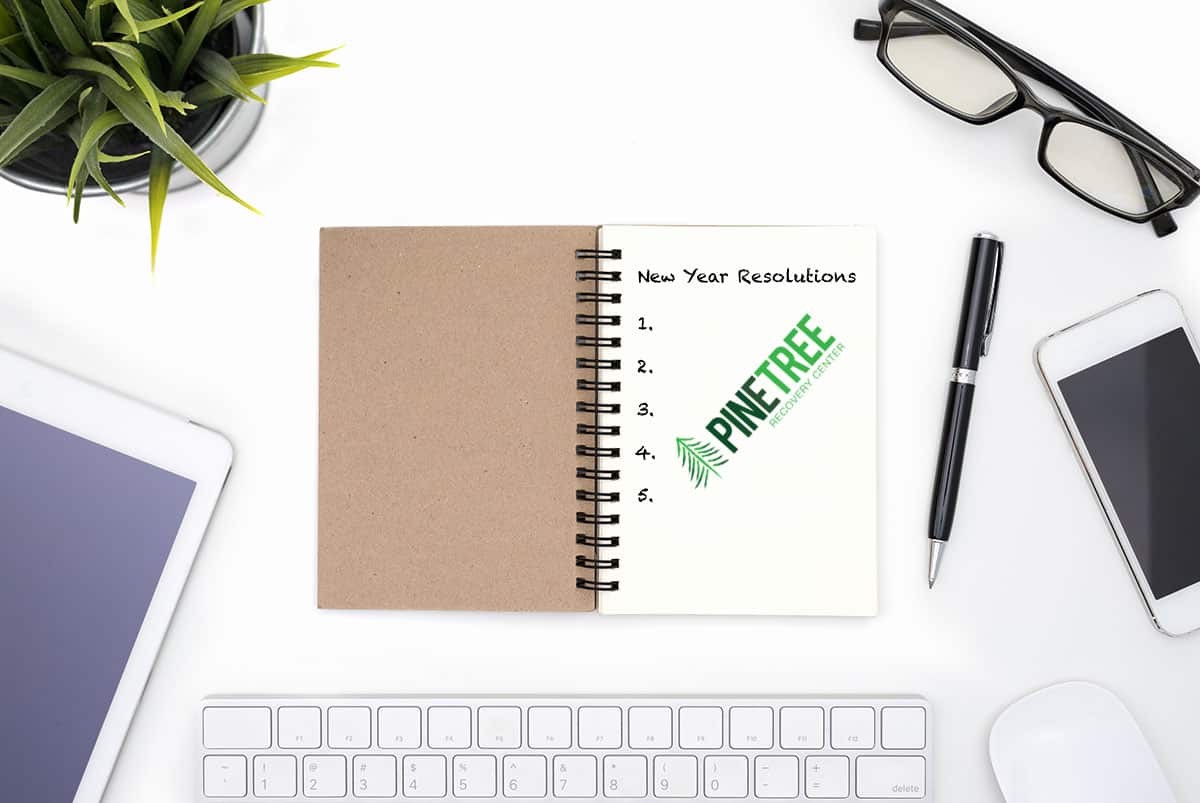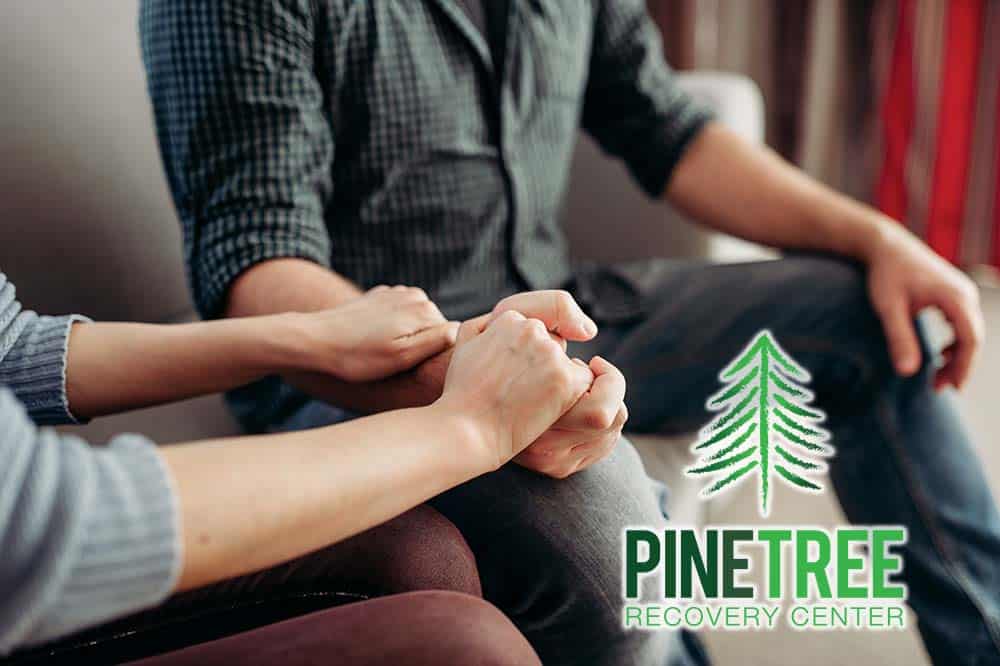The New Year is officially here, and you know what that means! Time to make a long list of resolutions, and strive to be the very best versions of ourselves. In most cases, we’ll set a wide range of lofty goals, expecting to dive into them headfirst and make all the changes that we deem necessary both quickly and permanently. Realistically, of course, we’ll fall off-track within the first several weeks. It isn’t because we lack resolve, or because we simply stop caring about self-betterment. In most cases, it’s because we attempt to do too much too soon – we set broad, strict goals, and we’re surprised when we fall short. Lose 20 pounds, exercise daily, eat healthier, pray and meditate every day, finish the steps, get 12 sponsees… These are great personal goals, but piling them all at once can be overwhelming. And when we feel overwhelmed, we’re more likely to completely discard what it is that’s stressing us out, rather than taking a step back and re-evaluating. Instead of throwing in the towel entirely, try making small resolutions and spreading them out over the year. Rather than saying, “I’m going to lose 20 pounds,” for example, try saying, “I’m going to focus on exercising as regularly as I can, with the ultimate goal of getting in shape and losing some weight.” Rather than saying, “I’m going to get 12 sponsees,” try saying something like, “I’m going to hang out after meetings for at least 10 minutes and talk to as many newcomers as I can.” Set realistic goals – goals that set solid parameters, but are not too harsh or specific.
If you’re new to recovery or if you’ve been in recovery for quite some time, you will likely want to incorporate some recovery-related resolutions. Of course, these resolutions will look different for everyone, and they don’t need to directly involve sobriety in order to be deeply beneficial. For example, maybe attending one or two yoga classes every week bolsters your recovery, because doing so helps alleviate stress. Perhaps spending time outdoors is your own personal method of meditation, and so you resolve to take at least one short hike every week – or a walk, if you don’t have time for a full-blown hike. Keep your resolutions flexible and personal to you.
What is a Resolution?
The concept of a resolution is pretty straightforward. Simply put, a resolution is the definitive decision to do something (or not do it). Those that don’t understand substance abuse often think that it’s a matter of week resolve, for example. They may think that if an addict really wanted to stop using drugs badly enough, he or she would just stop. Of course, those with personal experience know that addiction has nothing to do with resolve. Fortunately, most things do! In most cases, you can make a choice and stick with it. While you’ve undoubtedly begun to come up with your own list, looking at someone else’s resolutions for recovery can be inspirational. We at the Pine Tree Recovery Center have been brainstorming some epic treatment goals for substance abuse (and recovery goals for those with a little sobriety under their belts).
Here’s what we’ve come up with.
Goals for Those in Treatment
If you’re still in inpatient treatment, or if you are just about to enter into a rehab facility, here are some pertinent resolution ideas:
- Stick with your program of recovery.
Even when things get tough (which they will, from time-to-time), stick with your program. Remind yourself that every uncomfortable emotion you feel is temporary, and that things will almost always be better when you wake up tomorrow. No matter what happens, keep on keepin’ on!
- Ask questions whenever questions arise.
It can be easy to convince yourself to keep quiet during the very first days of recovery. You might think, “That’s stupid, no one cares,” or, “I should already know that – I should already know how to do that.” In early sobriety, there honestly is no such thing as a stupid question, regardless of how it may feel.
We Are Here For You
- Step outside of your comfort zone whenever possible.
In very early sobriety, almost everything will feel uncomfortable. You’ll feel awkward in your own skin, but don’t worry – you’re supposed to! And this uncomfortable growth spurt will lead to truly great things. With this in mind, step even further outside of your comfort zone. Doing things that you don’t necessarily want to do will help you to ‘grow up’ even faster.
- Talk to others who have been through what you’re going through.
It’s easy to feel alone in very early sobriety – you might feel as if no one can relate; no one understands what you’re going through. While it may feel this way, this isn’t reality – there are hundreds of people who have been through what you’re going through. People who can help. People who aren’t just willing, but eager to help. Let them!
- Listen to the professionals.
The experienced professionals at your rehab center are there to help you – really, that’s their only goal. They will help you to develop specific treatment goals for substance abuse, and make sure that your goals are specially designed to meet your personal needs. Listen to what they have to say! While putting all of your trust in a stranger can be hard, know that the staff at Pine Tree always has your best interest in mind.
- Work on forgiving yourself.
This can be the hardest resolution to make and the hardest goal to achieve – however, it is absolutely one of the most important. Try to understand that forgiveness won’t happen overnight, but as you continue to grow more comfortable in your own skin and get to know yourself on a more authentic level, self-forgiveness will come more naturally. Acknowledge the process, and allow it to happen.
Our Drug & Alcohol Detox Services Include
Goals for Those in Recovery
If you’ve been in recovery for months or years, or if you’re still pretty new to the scene, here are a few examples of resolutions that will help you move towards your ultimate goal of long-term recovery:
- Find a new hobby and engage it in regularly.
Part of getting to know yourself is experimenting with new, healthy activities – maybe things you used to love and stepped away from, or maybe things you’ve never tried. Find a new hobby – something that makes you happy – and throw yourself into it!

- Work on continuing to expand your personal program of spirituality.
As far as spirituality goes, there isn’t really a ceiling. Meaning, you won’t wake up one morning and think to yourself, “Well, that’s it! I’m as connected as I can possibly be, time to head down to the Department of Spirituality and grab my certificate of completion!” This is a great ongoing goal, and one that will always help bolster your recovery.
Ready To Begin Your Drug & Alcohol Detox?
We Offer A Safe & Effective Program
Don’t let Drug & Alcohol addiction control your life.
Call us today and let’s get you started on the path to a better you.
- Practice self-care.
Self-care doesn’t imply a day at the spa, a mani-pedi, or a bubble bath. Self-care essentially means that you are setting and maintaining the boundaries necessary to maintain your mental, emotional, and physical health. Find out what self-care means to you, and make sure you’re engaging in it regularly.
- Continue asking for help when you need it (or start asking for help, as the case may be).
No matter how many years of recovery you have (20, 30… even 40), it is never too late to ask for help. We all hit roadblocks, and there’s no shame in asking for assistance or guidance when you need it. Vulnerability is a sign of strength.
- Do what you need to do for you without apologizing for it.
Resolve to stop apologizing for setting boundaries and doing what you need to do to stay on track. This specific resolution will help us to further understand how important self-care is, while helping to bolster self-esteem.
Begin Healing Now!
Have A Call With One Of Our Treatment Advisors
Don’t Suffer Any Longer
Have a beautiful, healthy, and fulfilled New Year from all of us at Pine Tree Recovery Center!
Have a beautiful, healthy, and fulfilled New Year from all of us at Pine Tree Recovery Center!

Goals for Those in Recovery
If you’ve been in recovery for months or years, or if you’re still pretty new to the scene, here are a few examples of resolutions that will help you move towards your ultimate goal of long-term recovery:
- Find a new hobby and engage it in regularly.
Part of getting to know yourself is experimenting with new, healthy activities – maybe things you used to love and stepped away from, or maybe things you’ve never tried. Find a new hobby – something that makes you happy – and throw yourself into it!

- Work on continuing to expand your personal program of spirituality.
As far as spirituality goes, there isn’t really a ceiling. Meaning, you won’t wake up one morning and think to yourself, “Well, that’s it! I’m as connected as I can possibly be, time to head down to the Department of Spirituality and grab my certificate of completion!” This is a great ongoing goal, and one that will always help bolster your recovery.
- Practice self-care.
Self-care doesn’t imply a day at the spa, a mani-pedi, or a bubble bath. Self-care essentially means that you are setting and maintaining the boundaries necessary to maintain your mental, emotional, and physical health. Find out what self-care means to you, and make sure you’re engaging in it regularly.
- Continue asking for help when you need it (or start asking for help, as the case may be).
No matter how many years of recovery you have (20, 30… even 40), it is never too late to ask for help. We all hit roadblocks, and there’s no shame in asking for assistance or guidance when you need it. Vulnerability is a sign of strength.
- Do what you need to do for you without apologizing for it.
Resolve to stop apologizing for setting boundaries and doing what you need to do to stay on track. This specific resolution will help us to further understand how important self-care is, while helping to bolster self-esteem.
Have a beautiful, healthy, and fulfilled New Year from all of us at Pine Tree Recovery Center!
Have a beautiful, healthy, and fulfilled New Year from all of us at Pine Tree Recovery Center!


Reviewed for accuracy by:
Randi Bruneau
LCSW, LADC, CCS
Randi is a Licensed Clinical Social Worker and Licensed Alcohol and Drug Counselor and Supervisor who has over 20 years of experience in the field of mental health and addictions. She has worked in both clinical and administrative leadership roles and also has extensive career experience in gender specific trauma treatment, crisis intervention, structural family work and substance use disorder treatment and supervision.























